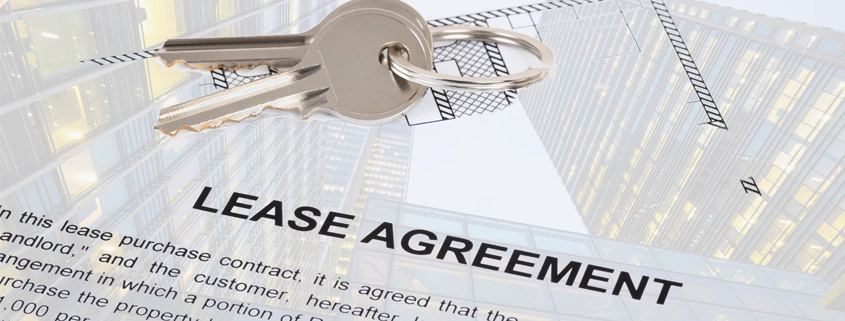What are EPCs, and why should they matter? If you own/rent or lease a commercial property then this legislation could have a far-reaching impact on both your buildings and how and where your business operates.
To ensure the timely conversion of building stock the UK has introduced increasingly stringent environmental, social and governance (ESG) regulations. The Energy Act (2018) is one such tool which has been designed to prompt landlords to ensure properties are energy efficient. When legislation relating to Energy Performance Certificates (EPCs) was introduced as part of the Energy Act, there was much consternation from domestic landlords facing additional costs to bring buildings up to standard.
Since then, there have been a series of complaints cited against EPCs, not least because of the focus on the building fabric and the installed technologies, rather than how the current occupants use the buildings. Reduced Data Standard Assessment Procedure (rdSAP) software model used for EPCs, for example, ignores key factors such as the versatility of heat pumps and thermal storage in its calculations, despite these being core technologies deployed as we electrify heat. Another cited problem relates to the data which forms the foundations of the EPCs which, currently, use carbon emissions and Primary Energy Factors dating to 2012, which are no longer reflective of the UK’s energy mix which has more renewables and little to no coal.
Despite the complaints, the legislation has continued to move forward. Since 1st April 2023, the ensuing legislation – the Minimum Energy Efficiency Standard (MEES) – prohibits landlords from leasing commercial buildings with an EPC rating of ‘F’ or lower. This also extends to existing tenancy agreements. The impetus for the legislation stems from the fact that rented buildings account for 61% of the total non-domestic stock in England and Wales, and are responsible for 37.5% of the total emissions from non-domestic buildings, according to recent figures from the Department of Business, Energy & Industrial Strategy (BEIS). As a result, the new legislation means buildings currently rated F or G are at risk of becoming non-performing assets for building owners and landlords. According to the most recent government estimates, around 11.4% of commercial buildings in Great Britain currently fail to meet the new standard.
And this is just the first move in the government’s overall net zero proposal for all non-domestic buildings, with requirements that the properties attain a C rating by 2027 and then a B by 2030.
The intent is to drive forward the government’s goals for net zero by 2050. Improving the energy efficiency of a building is, according to the government, “one of the most cost-effective ways in which businesses can reduce their energy use and lower the associated bills in the buildings they occupy.” The government estimates non-domestic property owners, landlords and tenants are losing around £1 billion in cost savings achievable through investment in energy efficiency, whilst capital expenditure (CAPEX) is tied up in depreciating assets such as equipment and systems. And it believes that by driving up business sustainability concerns, leaseholders inhabiting F- and G-rated properties will start searching for modernised and more sustainable buildings which help future-proof operations and the comfort of their workforces. Under EPCs properties become un-lettable, and landlords with lower-rated properties face penalties ranging from £5,000 to £150,000 based on the duration of the breach and a percentage of the rateable value of the building, the threat of non-performing assets is felt to provide new incentives for energy efficiency upgrades which should be a top investment priority.
But is an urgent implementation of energy efficiency improvements the response coming from landlords and property owners? The answer, at least from the domestic sector appears to be a resounding no, with recent research conducted by Green Building Renewables, suggesting 63 per cent plan to sell properties rather than invest in energy-efficient measures like insulation, heat pumps and solar. This figure climbs to 75 per cent of London landlords. The predominant cause for concern was one of how to raise the necessary capital for property improvements needed to meet EPCs’ ‘C’ rating. These costs increase exponentially for commercial properties where the size and age of the building, and system demands can add further complexity to refurbishments.
With expectations that 80% of the current built environment will still be in use by 2050, it is an issue that cannot be ignored, and facilities management and building owners must now urgently consider the implementation of energy efficiency improvements in commercial buildings if they haven’t already started. Financing refurbishment work through energy performance contracting is one option, using future savings on energy consumption to finance energy efficiency upgrades now. The problem we have seen though is that moving to electrification from gas does not save money, at least not based on current gas/electricity prices, and is unlikely to shift in the near to mid-term unless government policy on energy taxation shifts dramatically to bring electricity in line with gas prices. While the UK grid continues to rely on gas-powered generation of electricity, we do not see the current scenario where electricity is as much as four times the cost of electricity changing very soon.
So as a non-domestic building owner/landlord, what can you do to address EPC ratings? As hot water specialists, we cannot address the fabric of a building as assessed for EPCs but we can address the installed water heating technologies which can be responsible for as much as 30% of the daily energy demand of commercial organisations and therefore be a main contributor to carbon emissions. We offer a wide range of low-carbon and renewable products, especially Solar Thermal and Air Source Heat Pumps (ASHP) that when packaged together with electric boilers such as ARDENT to create the FUSION water heater range, can deliver those all-important carbon reduction figures, as much as 70% compared to existing gas-fired systems. But how can we help tackle those worrying capital investments?
The simple answer is to gather the necessary data to make the correct decisions for a property. Many organisations are making expensive mistakes looking to make a like-for-like transition from gas to electricity, not understanding that these systems work very differently when it comes to heating water efficiently to meet business demands and operational peaks. This can lead to oversizing systems and electrical supplies which comes at a considerable capital cost. Better then to use a service such as Adveco’s Live Metering, to gauge actual demands and gain theoretical usage models and design recommendations to steer sustainability strategies, whilst reducing the need for larger capital investment with fit-for-purpose design. As an added advantage, the modelling gives an indication of future operating costs which allows for greater long-term planning by facility and energy managers tasked with creating workable energy strategies to take businesses successfully towards 2050.
The cost to secure such expert survey work is minimal, and you can recoup 50% of the initial investment if you proceed with recommendations with Adveco. This means that for a matter of hundreds, rather than thousands of pounds, you can be in a position within a month or two to put actions in place that can not only help avoid costly penalties but help you be in a position to raise a rental property rating and counter threats of the building becoming a non-performing asset under future Energy Performance Certificates.
 If your business is looking to improve its energy performance, then speak to Adveco. We ae the UK experts in commercial hot water systems with over 50 years experience.
Call now to discuss your project on 01252 551 540 or complete the contact form.
If your business is looking to improve its energy performance, then speak to Adveco. We ae the UK experts in commercial hot water systems with over 50 years experience.
Call now to discuss your project on 01252 551 540 or complete the contact form.
 If your business is looking to improve its energy performance, then speak to Adveco. We ae the UK experts in commercial hot water systems with over 50 years experience.
Call now to discuss your project on 01252 551 540 or complete the contact form.
If your business is looking to improve its energy performance, then speak to Adveco. We ae the UK experts in commercial hot water systems with over 50 years experience.
Call now to discuss your project on 01252 551 540 or complete the contact form. 














